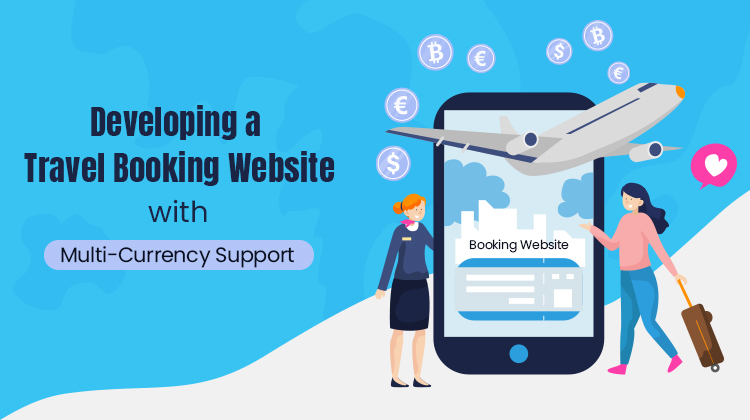
13 Jan, 2025
Have you ever dreamed of making global travel as easy as a few clicks? For businesses in the travel industry, the digital revolution has brought an opportunity like never before. Imagine a platform where a family in Paris can book a holiday in Bali or a solo traveler from Tokyo can secure their New York accommodation, all with prices in their local currency. That’s the magic of a well-designed travel booking website with multi-currency support.
In today’s interconnected world, convenience is king, and the competition is fierce. Travelers want seamless, intuitive platforms that cater to their unique preferences. If you’re a travel agency or entrepreneur looking to stay ahead, developing a travel booking platform isn’t just a smart move—it’s essential. In this blog, we dive into how you can create a feature-packed, user-friendly website that stands out in this ever-evolving market.
Why a Multi-Currency Travel Booking Website is Essential
A multi-currency travel booking website is pivotal for businesses aiming to cater to international travelers. By offering currency flexibility, you not only enhance user convenience but also establish trust among global audiences. Exchange rate transparency and real-time updates ensure users have a seamless booking experience, eliminating the need for external currency converters.
Additionally, businesses partnering with a travel portal development company can implement advanced solutions that reduce abandonment rates during checkout. Providing local currency options encourages users to complete transactions, minimizing payment discrepancies, and enhancing customer satisfaction and loyalty.
Key Features of a Travel Booking Platform
• Intuitive User Interface
An engaging user interface (UI) is the backbone of any successful travel booking website. Clear navigation menus, visually appealing layouts, and fast loading times ensure users can find and book their desired services effortlessly. Partnering with a travel booking portal development company ensures that filters for destinations, travel dates, and budgets enhance the overall user experience.
• Multi-Currency Integration
Seamless multi-currency support requires integration with reliable payment gateways. By using APIs that fetch real-time exchange rates, you ensure pricing accuracy. This feature caters to international travelers, making transactions straightforward and transparent.
• Mobile Responsiveness
With a significant number of bookings happening via mobile devices, ensuring mobile responsiveness is non-negotiable. A mobile-optimized travel booking site allows users to browse and book on the go, enhancing accessibility and satisfaction.
• Secure Payment Gateways
Security is a top priority when developing a platform that handles sensitive user data. Employing encrypted payment systems, secure sockets layer (SSL) certificates, and two-factor authentication (2FA) guarantees the protection of user information and builds trust.
• Personalization Options
Modern users expect a tailored experience. Integrating features like personalized recommendations, saved preferences, and loyalty programs increases engagement and encourages repeat bookings.
Technical Aspects of Building a Travel Booking Website
• Robust Backend Development
The backend of a travel booking site should handle data management, user accounts, and real-time updates efficiently. Using frameworks like Django or Laravel ensures scalability and reliability. A well-structured backend supports smooth operations even during peak traffic.
• API Integration
Integrating APIs for flights, hotels, and car rentals enables real-time data fetching and booking confirmations. Third-party APIs like Amadeus, Skyscanner, and Booking.com simplify this process while ensuring accuracy.
• Search Engine Optimization (SEO)
SEO is crucial for attracting organic traffic. By optimizing your site with semantic keywords like “online booking system” and “hotel booking software,” you improve visibility. Implementing structured data markup enhances your chances of appearing in rich search results.
• Testing and Quality Assurance
Thorough testing ensures the platform’s reliability. Functional, performance, and security testing must be conducted before launch. Load testing helps identify and resolve potential bottlenecks, ensuring seamless performance during high traffic.
Benefits of a Well-Designed Travel Booking Website
A professionally designed travel booking site boosts brand credibility and customer trust. It simplifies the booking process, enhances user satisfaction, and improves overall operational efficiency. By incorporating multi-currency support, businesses can cater to a broader audience, increasing revenue streams. Companies those are specializied in travel portal development solutions also prioritize scalability and personalization features, ensuring long-term growth.
Additionally, a responsive and secure platform builds loyalty, encouraging repeat bookings. Collaborating with a travel booking portal development company ensures your platform meets the latest industry standards.
Conclusion
The world of travel is vast, but your platform can make it smaller, more accessible, and seamless for users. A cutting-edge travel booking site with multi-currency support isn’t just a convenience; it’s the future of travel services. By providing intuitive navigation, secure payment options, and tailored features, you give your customers a reason to choose your platform over competitors.
At Idiosys Tech, we bring this vision to life. As a trusted web development company in Kolkata, we specialize in creating innovative, user-focused platforms tailored to your business needs. Ready to redefine travel booking for your customers? Partner with Idiosys Tech and build a platform that transforms global travel into a truly local experience. Contact us today to start your journey!
________________________________________________________
How does multi-currency support benefit a travel portal?
It enables international users to view prices in their currency, improving trust, reducing cart abandonment, and making transactions seamless.
Who can benefit from a travel portal?
Travel agencies, tour operators, airlines, hotels, and car rental services can all expand their reach and streamline operations with a travel portal.
What technologies are used in travel portal development?
Technologies include React or Angular for the frontend, Laravel or Node.js for the backend, and APIs like Amadeus or Skyscanner for bookings.
How do travel portals help increase revenue?
They attract global users with multi-currency support, offer tailored services, and provide 24/7 accessibility, leading to more bookings and higher profits.
________________________________________________________
You May Also Read

